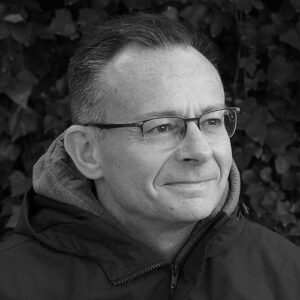If you widen the definition of poetry to include what’s thinkable and worded but unspoken, I’ve always made poems. As a child I was in a secret relationship with an imagined internal reader, containing and benign. Through necessity, my mind had become my own mother. I was a gay kid grappling with “who am I?” long before I began to contemplate “what happened to me?”
Less interesting to me is how I swallowed actual poetic pieces of the canon fed to me in manageable chunks at school. I remember two moments from the white British men on offer: the alliterative erotics of D H Lawrence’s ‘Snake’, and the permission to condense darkness (“blood-shod”) given by Wilfred Owen. Sex and death at eleven.
I’m drawn to poets who know survival and othering and the alchemical joy of creating with it. Ocean Vuong and Natalie Diaz now … Lorde and Rich then. And I wait impatiently for any new work by Philip Gross and Jack Underwood. My mind goes blank when I try to think of a favourite line. It’s like asking me to choose a favourite hair on my daughter’s head.
My poetry reviewing is done through a psychoanalytic lens which I can’t switch off. For me, it’s a humanistic not a diagnostic way of seeing. If I can make associations, tune into unconscious echoes, turn over and lift up lines of beautiful devastating economy, all to the good.
In these early years of motherhood, I’m not writing down my own poetry. My daughter is too young to write, and I’m not drawn to her as a subject now she’s here. My pandemic pamphlet is a non-linear thread of the dream of her. She loves to paint, and I paint with her. When she sleeps (and dreams) I review poetry. Slowly and gratefully.

